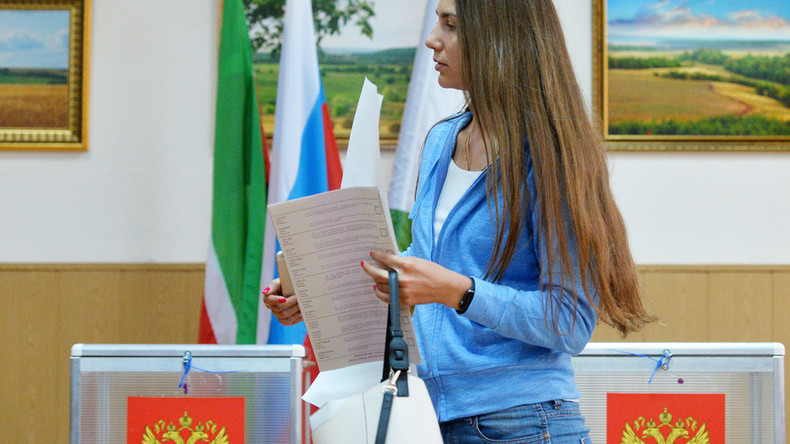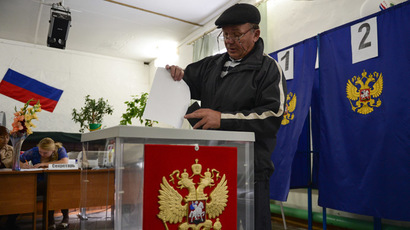Most Russians oppose compulsory voting, poll shows

According to a study conducted by the Russian state-run public opinion research center VTSIOM, 63 percent of the Russian public currently oppose the idea of compulsory voting while only 34 percent of respondents support it.
Of those who did not like the initiative, 64 percent said it was because they considered voting and the political process in general a private affair that should not be forced upon an individual. Fourteen percent said it would be unjust to force people to vote given that the results of elections were pre-decided and not dependent on the results of the polls. A further 14 percent noted that people often had no opportunity to participate in elections and that punishing them for that would be unjust.
Of those who said that compulsory voting was a good and feasible idea, just over half – 51 percent – justified their choice by the statement that elections were a civil duty. Sixteen percent said that this step could prevent poll rigging and 14 percent answered that it would add to the objectivity and transparency of elections.
When researchers asked the proponents of compulsory voting what sanctions in their view should be used against those who dodge their perceived duty, 32 percent favored monetary fines, 13 percent said that violators should be sentenced to community service, and 14 percent answered that a general denouncement by society would be enough. A third of respondents said there was no need to back up the proposal with threats of punishment.
The poll was conducted in early October, soon after Russian mass media reported that lawmakers representing the center-left Fair Russia party intended to draft a motion ordering compulsory voting, with fines of about 3,000 rubles (just under US$50) for those who are able to participate in elections but choose not to.
The issue also was raised in 2014 by the then-head of the Moscow city elections commission, Irek Vildanov, who wanted to use fines for non-voters to increase election turnout. Back then the suggestion was scrapped by Russia’s top elections body – the Central Elections Commission.
This September the head of the commission, Ella Pamfilova, told reporters that the introduction of compulsory voting was a matter that could be decided by a nationwide referendum. However, in later comments Pamfilova emphasized that the statement was a purely theoretical exercise as she had not heard any real proposals of this kind, either from her subordinates or in the presidential administration.










